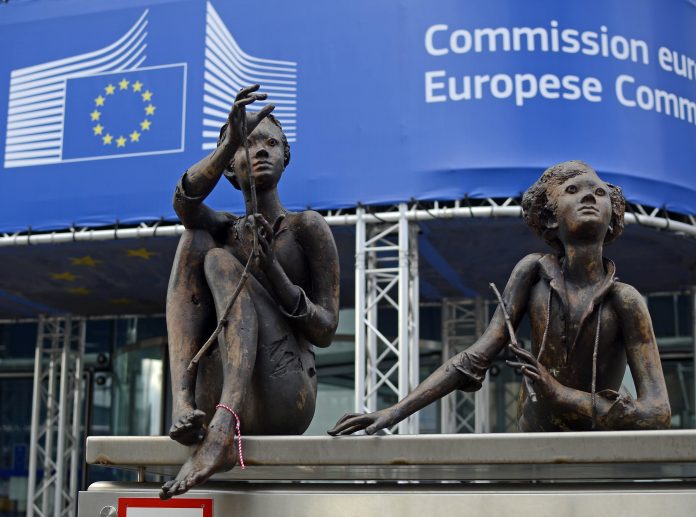Energy Union and climate as a priority of the European Commission are placed under the spotlight here by Open Access Government
Energy Union and climate change are a very high priority for the European Commission. They believe that in building an Energy Union, all Europe’s energy supply will be viable, safe and accessible to all. This is an approach that boosts the economy and attracts investments that have the potential to open up new job opportunities. (1)
This article will look at the work of some key figures in this part of the European Commission, with a focus on Maroš Šefčovič, Vice-President, Energy Union, who will soon move onto his new role of Interinstitutional Relations and Foresight as part of the 2019-2024 Commission. One of his responsibilities today is leading the project team Energy Union and another is improving energy efficiency, amongst many more. (2)
In recent news, we learn that the European Commission adopted a Communication reaffirming the commitment of the EU to accelerate climate ambition. Commenting on this in more detail in the lead up to the Climate Action Summit by the United Nations Secretary-General in New York, Maroš Šefčovič provided further comments. However, by the time you read this, it will have already taken place (on 23rd September 2019) but the comments are, nevertheless, very insightful. “With the Paris Agreement, for the first time all parties committed to reduce emissions. Now we must make sure these reductions are timely enough to avoid the worst of the climate crisis.
The European Union will bring to New York the fruit of our work on the Energy Union: a realistic perspective of a climate-neutral Europe by 2050, backed by ambitious policies set in binding legislation. The EU has ensured that all sectors contribute to the transition. At the Climate Action Summit, we hope our plans will inspire other countries, and we hope to be inspired. Our message is simple: Europe delivers.” (3)
Energy Union governance ensures that the 2030 Climate and Energy targets are reached. Maroš Šefčovič said in July that he has the ambition to provide the financial sector and businesses, “with the necessary clarity and predictably to spur clean energy investment across Europe.”
He added that the development of renewable energy generation required a move from a power-centric to decentralised models (with households/communities producing, storing, consuming and selling their electricity). He also explained that raw materials are part of carbon-neutral renewable energy technologies (photovoltaic and wind) and that they are vital for sustainable mobility, like energy storage (industrial batteries) and electric vehicle batteries. (4)
Certainly, the EU has been at the forefront of global climate action and will continue to do so. We can see this in the ambition of the President-Elect of the European Commission, Ursula von der Leyen who plans to make Europe the first climate-neutral continent by 2050. (5) Picking up on this theme of climate change, we know that it is something that is with us and to which we are vulnerable to, in the view of Maroš Šefčovič.
In speaking points by Maroš Šefčovič on the EU preparation for the UN Action Summit published on 11th September 2019, he said there is no time to waste and draws our attention to the very hot summer that took place in 2019. One fascinating point he made concerns a vision for a climate-neutral Europe by the middle of this century. He details more about this bold ambition in his own words.
“We are delivering on our 2020 targets, we have legislated to overachieve on our 2030 contribution to the Paris go climate-neutral twenty years after, already supported by a large majority of our Member States.
“We are also serious about financing our ambition, which is why we proposed that 25% of our next financial framework should be dedicated to climate-related activities, including for just and fair transition. And we remain the world’s largest donor of international climate finance, with EU and Member States’ contributions more than doubled since 2013.” (6)
Another key figure at the European Commission in this policy area was Dominique Ristori, who worked there from 1978-2019. During his time there, he held several senior positions, his most recent one being Director General for Energy.
Another one of his positions he held was Director-General of the Joint Research Centre (JRC) between 2010 and 2013. Another was Director in Charge of General Affairs and Resources in DG Energy and Transport, from 2000 to 2006. Ditte Juul Jørgensen has now replaced Dominique Ristori as Director-General for Energy and we wish her well in this role.
We wish Frans Timmermans (European Green Deal) and Kadri Simson (Energy) well for the next period of the Commission. From 2019-2024 they will begin their roles, continuing crucial work in navigating energy and climate change.
References
1. https://ec.europa.eu/commission/priorities/energy-union-andclimate_en
2. https://ec.europa.eu/commission/commissioners/2014-2019/sef covic_en
3. https://ec.europa.eu/commission/presscorner/detail/en/IP_19_5534
4. https://ec.europa.eu/commission/commissioners/2014-2019/ sefcovic/announcements/speech-towards-green-industrial-policy-eueuropean-house-ambrosetti-brussels_en
5. https://www.openaccessgovernment.org/european-commissioners/73200/
6. https://ec.europa.eu/commission/presscorner/detail/en/SPEECH_19 _5551
7. https://ec.europa.eu/info/persons/director-general-dominiqueristori_en











